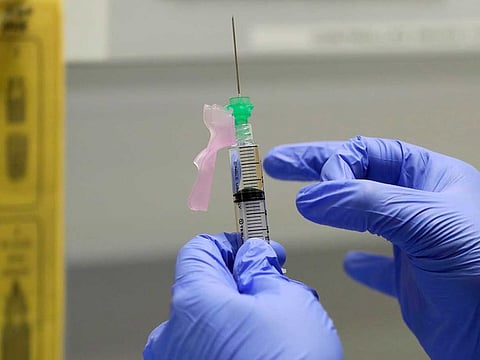England puts doctors on alert for Covid vaccine before Christmas
BBC on Wednesday said that there is more than 200 Covid-19 vaccines in development

Doctors in England have been put on standby for the possible roll-out of a coronavirus vaccine before Christmas, which would potentially turn the tide in the fight against the pandemic. Simon Stevens, chief executive of the National Health Service in England, told the BBC on Wednesday that with more than 200 Covid-19 vaccines in development, one will "hopefully" be available in the first part of next year, but doctors will be "gearing up" in case it is ready sooner.
The U.K.'s drug regulator has started accelerated reviews of vaccines under development by Pfizer Inc. and AstraZeneca Plc, as Britain gets ready to approve the first successful shot as quickly as possible. Boris Johnson's government regards the emergence of a vaccine, as well as the development of treatments, as the best way to avoid future lockdowns and ease social-distancing rules that are devastating the economy. England is preparing to go into a second national lockdown from Thursday to try to contain a new wave of infections that threatens to overwhelm hospitals.
Andrew Pollard, Chief Trial Investigator at the University of Oxford, said he's optimistic results could come before the end of the year to show whether the experimental vaccine will work. "We're getting closer, but we're not there yet," he told a hearing of Parliament's science committee on Wednesday. There's a "small chance" a vaccine could begin to be distributed to people by Christmas, he said, adding that the time lines aren't yet clear.
Ministers have said care home residents and workers will be first in line to receive a vaccine, followed by people aged 80 and over, followed by healthcare workers and then the wider population. But Kate Bingham, chairwoman of the U.K. Vaccine Taskforce, warned last week the arrival of a vaccine may not bring an end to the pandemic.
"The first generation of vaccines is likely to be imperfect, and we should be prepared that they might not prevent infection but rather reduce symptoms, and, even then, might not work for everyone or for long," she wrote in The Lancet medical journal.
Sign up for the Daily Briefing
Get the latest news and updates straight to your inbox







